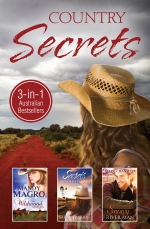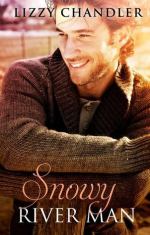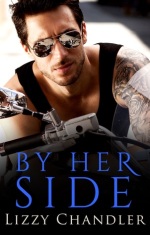 What makes girls and women conform or rebel? What challenges have Australian women faced growing up in ethnically, religiously and culturally diverse families over the past sixty-plus years?
What makes girls and women conform or rebel? What challenges have Australian women faced growing up in ethnically, religiously and culturally diverse families over the past sixty-plus years?
Rebellious Daughters, edited by Maria Katsonis and Lee Kofman, is a collection of stories about growing up, parenting and being parented, by seventeen Australian women of diverse ages and backgrounds, including Greek, Jewish, Asian, Anglo and Bosnian. It is book-ended by – I suspect – the two oldest contributors, Marion Halligan and Jane Caro. Halligan’s piece harks back to a time when the contraints on girls growing up were just as much internal as external; when saying the word “brothel” (which happened to rhyme with her “maiden” name) wasn’t the done thing in polite society, and that norm was adopted by the author almost unquestioningly. Caro’s contribution, by contrast, reflects on a time of vastly different mores; when she not only shows no affront when her teenaged daughter swears at her (“If you’re so keen on fucking counselling…why don’t you fucking go?”), she actually takes her daughter’s advice. Elsewhere in the collection, the narratives reflect a huge shift in Australian women’s lives, the result of changing attitudes towards sexuality, contraception and marriage; religion and cultural beliefs; as well as expectations of women regarding motherhood and careers. Along the way, it ranges over themes of obedience and disobedience; mental health and illness; travel and education; pregnancy and mothering; as well as the sometimes fraught choice of whether or not to have children. Weaving through them all is a common theme: how can one, as a woman, grow up to lead a “good” life, without having to be a “good girl”?
For me, there were a number of standout contributions. Some made me laugh, including Lee Kofman’s “Me, My Mother and Sexpo” and Michelle Law’s “Joy Ride”. Others moved me to tears, including Halligan’s “Daughters of Debate” with its “landscape of loss”, and Eliza-Jane Henry-Jones’ “Just Be Kind”. Some use metaphor as a vehicle for carrying complex emotions, such as guilt and love in Leah Kaminsky’s “Pressing the Seams”; while Rochelle Siemienowicz, in “Resisting the Nipple”, takes a more psychoanalytic approach, quoting Jung as a way to help navigate such complexities. Several times I found myself holding my breath at the raw honesty of some of the contributors as they revealed their flaws in relation to the choices they have made, such as when reading Caroline Baum’s account of her estrangement from her parents in her early forties in her piece titled, “Estranged”.
The winner of the 2014 Stella Prize, Clare Wright, is quoted on the cover: “This is the first book I’ve read in a long time that has given me such unadorned pleasure.” “Pleasure” doesn’t quite cover it, for me. After reading Eliza-Jane Henry-Jones’ piece, I took to Twitter, declaring I felt “gutted”. The author got back to me, saying, “Glad you enjoyed it (is enjoyed the right word???!)” I responded, “A new word needs to be invented, embracing mangled, uplifted, saddened and heartened. With just a touch of amused thrown in.” That new word – if it existed – might apply not only to Henry-Jones’ piece, but also to the entire collection. It’s well worth a read.
~
Title: Rebellious Daughters: True Stories from Australia’s Finest Female Writers
Eds: Maria Katsonis & Lee Kofman
Publisher: Ventura Press
Date: 2016
ISBN: 9781925183628
This review forms part of my 2016 Australian Women Writers Challenge. My thanks to the publishers for a review copy.

 This saga has been sitting on my To Be Read pile for ages. I picked it up because I’m determined to read more historical fiction, stories about our ancestors and nation-building, having been inspired by tales told to me by my 93-year-old aunt who is writing her memoirs. How do authors bring the past alive? How do they incorporate research without swamping the reader with unnecessary detail? These are the questions on my mind when I read.
This saga has been sitting on my To Be Read pile for ages. I picked it up because I’m determined to read more historical fiction, stories about our ancestors and nation-building, having been inspired by tales told to me by my 93-year-old aunt who is writing her memoirs. How do authors bring the past alive? How do they incorporate research without swamping the reader with unnecessary detail? These are the questions on my mind when I read. One thing you can be certain of when you pick up a romance novel written by Kandy Shepherd, you’re in for a well-written, light-hearted read. It’s no accident Shepherd subtitles her website: “fun, feel-good fiction!” Her scenarios are fun; the inevitable happy ending is fun. Yet there are often surprising elements in the writing that adds an extra layer of enjoyment.
One thing you can be certain of when you pick up a romance novel written by Kandy Shepherd, you’re in for a well-written, light-hearted read. It’s no accident Shepherd subtitles her website: “fun, feel-good fiction!” Her scenarios are fun; the inevitable happy ending is fun. Yet there are often surprising elements in the writing that adds an extra layer of enjoyment.

